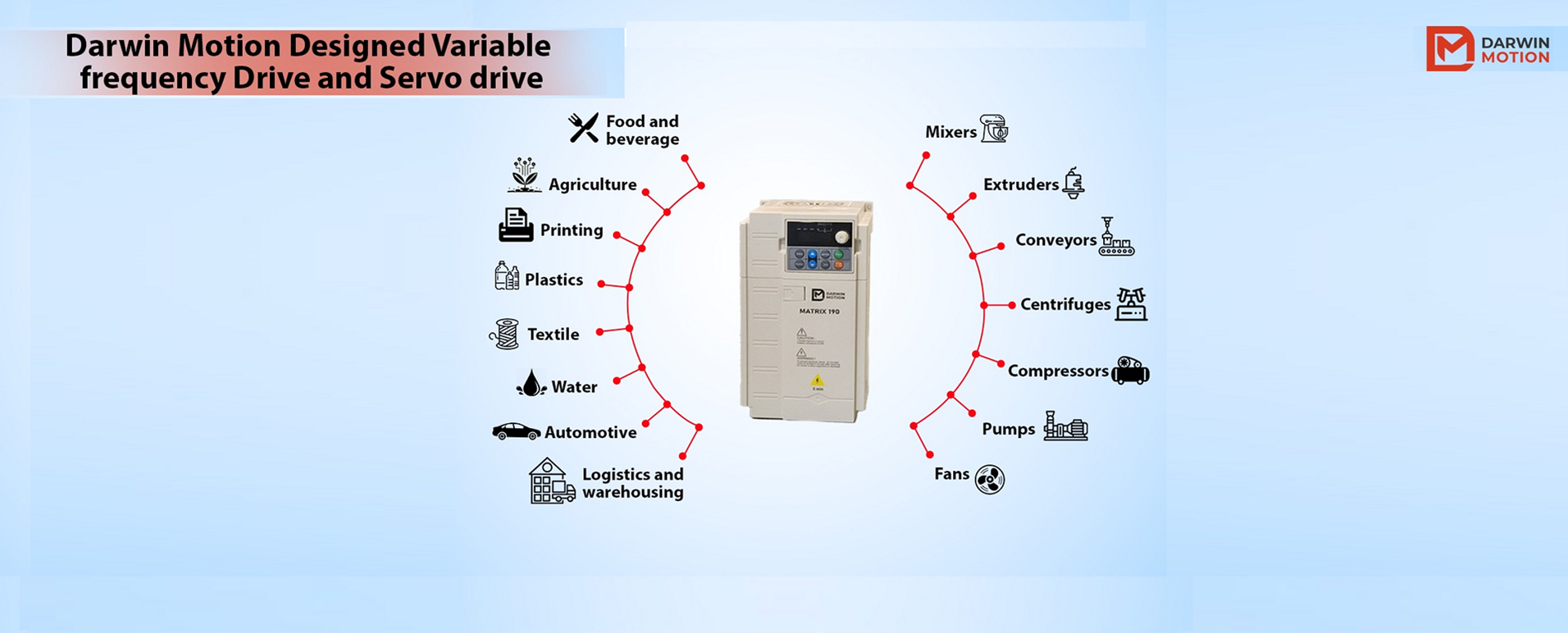Posted on 17th Jul 2024

In the realm of industrial manufacturing, energy efficiency is more than just a buzzword—it's a crucial component for sustainability, cost reduction, and compliance with environmental regulations. Industrial automation drives play a pivotal role in achieving these goals by optimizing energy usage across various processes. Here’s how they contribute to enhancing energy efficiency:
Industrial automation drives, such as Variable Frequency Drives (VFDs) and Servo Drives, are key components that regulate the speed, torque, and direction of motors in machinery and equipment. By controlling these parameters, automation drives ensure that energy consumption aligns precisely with operational requirements, thereby minimizing wastage.
Reduced Energy Consumption: Automation drives adjust motor speed based on real-time demand, reducing energy consumption during low-load or idle periods.
Optimized Processes: By fine-tuning motor operations, automation drives enhance process efficiency, leading to reduced cycle times and improved overall productivity.
Long-term Cost Savings: Lower energy consumption translates into significant cost savings over the lifespan of the equipment, making automation drives a sound investment.
Industrial automation drives find applications across a wide range of industries:
Manufacturing: Optimizing conveyor belts, pumps, and fans.
HVAC: Controlling ventilation and air conditioning systems.
Water and Wastewater: Managing pumps and filtration systems.
Mining: Regulating conveyor belts and crushers.
Variable Frequency Drives (VFDs): VFDs adjust motor speed by varying the frequency and voltage supplied to the motor, matching energy consumption with load requirements.
Servo Drives: Servo drive provide precise control over motor position and speed, ensuring accurate and efficient motion in robotics and CNC machines.
Energy Audits: Conducting regular energy audits helps identify inefficiencies and opportunities for improvement.
System Integration: Integrating automation drives with Energy Management Systems (EMS) enables real-time monitoring and control of energy usage.
Training and Awareness: Educating personnel on best practices for energy-efficient operation and maintenance of automation drives fosters a culture of sustainability.
Compliance: Meeting regulatory standards and certifications ensures adherence to energy efficiency guidelines and environmental laws.
Carbon Footprint Reduction: Implementing energy-efficient technologies contributes to lowering overall carbon emissions, aligning with corporate sustainability goals.
Highlighting successful implementations of automation drives in achieving energy efficiency goals can inspire and guide other industries toward similar initiatives.
Industrial automation drives are indispensable tools for achieving energy efficiency and sustainability in manufacturing operations. By leveraging technologies like Darwin Motion ac drive and servo drives, industries can not only reduce operational costs but also contribute positively to environmental conservation efforts. Embracing energy-efficient automation drives is not just a strategic choice for businesses—it’s a commitment to a greener, more sustainable future.
Incorporating these technologies into your manufacturing processes can lead to significant improvements in both economic and environmental performance, paving the way for a more sustainable industrial sector globally.